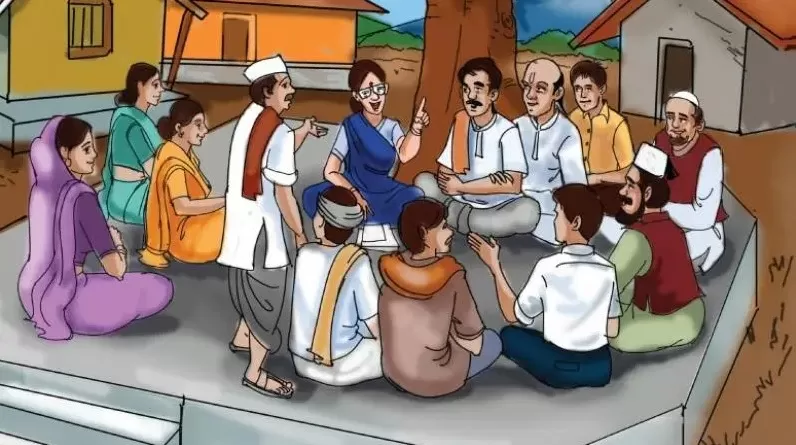ADR IN BANGLADESH
In simple term, Alternative Dispute Resolution (ADR) is an alternative route for reaching a speedier and less-expensive mode of settlement of disputes without taking resort to litigation.
Formally, the term ADR encapsulates all dispute resolution practices outside of litigation, such as mediation, negotiation, conciliation or arbitration etc. Most countries of the world have adopted ADR mechanism and achieved tremendous success in reducing backlog and increasing access to justice for the under privileged.
Bangladesh has an age-old history of Alternative Dispute Resolution (ADR) applied both formally and informally. The village people usually prefer settling disputes amongst themselves and in certain cases intervention from senior and respected members of the society which are popularly known as Shalish and Mimangsha. These dispute resolutions are usually undertaken through arbitration, mediation, negotiation, and reconciliation process, however, probably without knowing its formal legal structure by the parties. But over the course of time, Bangladesh has largely integrated different ADR processes in different Acts, making it compulsory to adopt ADR processes in certain situations under certain Acts with required guideline:
ADR in different Bangladeshi Laws:
- The Code of civil procedure, 1908.
- The Code of Criminal procedure, 1898.
- The Artha Rin Adalat Ain, 2003.
- The arbitration Act, 2001.
- The Bankruptcy Act, 1997.
- The Muslim Family Court Ordinance, 1985.
- The Muslim Family Law Ordinance, 1961.
- The Gram Adalat Ain, 2006.
- The Settlement of Disputes (Paura Area) Board Act, 2004.
- The Labour Act 2006
- The Tax Act 2023
There are mainly four types of popular ADR processes in Bangladesh –
(1) Negotiation,
(2) Mediation,
(3) Conciliation and
(4) Arbitration
Negotiation
In negotiation, participation is voluntary and there is no third party who facilitates the resolution process or imposes a resolution. Therefore, the parties themselves try to negotiate to a settlement, benefiting both the parties.
Mediation
Mediation is where an impartial third party facilitates a conversational process between the disputing parties to come to a satisfactory resolution.
Mediation allows for parties from both sides to directly express their thoughts on the dispute at hand and to create a unique solution that will meet both parties’ needs. The mediator should not be a judge or make decisions. The role of the mediator is to facilitate the conversation through negotiation- and communication techniques.
Mediation is based on following a process and certain protocols. This process allows the parties to focus on the real problems behind the dispute and requires all parties to actively participate. The aim is to devote more time to finding a voluntary, functional, durable, and peaceful solution. The mediation process allows for any of the disputants to withdraw from mediation and refer the dispute to the court system.
It is advised for the resolution to be drawn up in contract form at the end of the mediation. Since mediation is not under the authority of a judge, such a contract makes the mediation process legally more binding. This is to ensure that both parties recognise their part in the process forward, and give compliance. It is also tangible proof of the mediation process, and the achievement reached between the parties. This written document creates a clear ending to the mediation process.
Conciliation
Conciliation is focused on building a positive relationship between the disputing parties. Conciliation looks for a right that has been violated, and then try to find the best course of action. This is done through a facilitator that drives the disputants towards a satisfactory goal.
Conciliation is more often used preventatively, to stop a conflict from developing into something substantial. It is characterised by the parties’ voluntary participation in the process with the intent of finding a beneficial solution for all parties involved. It has a strict confidentiality rule that is enforced by law.
Conciliation allows for the facilitator to play a more direct role in the solution for the dispute. The facilitator can make suggestions towards certain proposals, and give advice for certain solutions. Therefore should the facilitator be an expert in a certain field that relates to the dispute at hand. The “impartial” role, in conciliation, is rather seen as an authoritative figure with the role of finding the most beneficial solution to the dispute. Most often it is the facilitator that proposes the terms of the agreement, and not the disputant parties.
Conciliation also aims to reconcile and maintain existing business relationships between the parties. This is not necessarily done according to a certain procedure or protocol like with mediation. The facilitator will determine the route depending on the case, often administering the conciliation process as a negotiation.
Arbitration
In arbitration, the dispute is submitted to a third party (the arbitrator) who resolves the dispute after hearing a presentation by both parties. Arbitration can only take place if both parties have agreed to it. The parties can select their arbitrator(s) in a systematic method. If they choose to have a three-member arbitral tribunal, each party appoints one of the arbitrators; those two persons then agree on the presiding arbitrator.
In addition to their selection of neutrals of appropriate nationality, parties are able to choose such important elements as the applicable law, language and venue of the arbitration. This allows them to ensure that no party enjoys a home court advantage. The decision of the arbitral tribunal is final and easy to enforce.
The process includes presentation of documents and arguments like court process. Evidence are submitted to the arbitrator by each side. More often, in addition to the documents submitted, each side will make an oral argument in person. Usually, each side will have an attorney to make the oral argument for them. Occasionally the presentation also includes witnesses who testify. After hearing all parties arbitrators renders the 'arbitration award'. An arbitration decision or award is legally binding on both sides and enforceable in the courts, unless all parties stipulate that the arbitration process and decision are non-binding.
|
Process |
Description |
|
Negotiation |
A process in which two or more parties communicate directly with each other to try to reach an agreement on a course of action or to resolve a dispute. Negotiation is voluntary and can take place informally or as part of a formal process. The parties have the freedom to agree on any terms they see fit, and they may seek the assistance of lawyers or other advisers. |
|
Mediation |
A process in which a neutral third party (the mediator) helps the parties to a dispute communicate and negotiate a resolution. The mediator does not have the authority to make a decision on the dispute, but rather helps the parties come to an agreement on their own. |
|
Conciliation |
A process in which a neutral third party (the conciliator) meets with the parties to a dispute and helps them to identify the issues in the dispute and explore options for resolution. The conciliator does not have the authority to make a decision on the dispute, but rather helps the parties come to an agreement on their own. Conciliation is similar to mediation, but may be more informal. |
|
Arbitration |
A process in which a neutral third party (the arbitrator) hears both sides of a dispute and makes a binding decision. Arbitration is similar to a trial, but is typically quicker, less formal, and less expensive. The parties may agree to arbitration as an alternative to litigation or as part of a contract. The arbitrator’s decision is final and binding, unless the parties agree to have it reviewed by a court. |
The differences between mediation and conciliation
1. The process of dispute resolution in which a third party intervenes in an attempt to resolve it, by enabling communication between parties is called mediation. On the other hand, conciliation implies a process of settling the dispute between the parties, in which a neutral third party provides potential solutions to the parties so as to resolve the issue.
2. Both mediation and conciliation are premised on confidentiality. However, in mediation, confidentiality relies on the trust and in conciliation, the law determines the extent of confidentiality.
3. In mediation, the role of the third party is a facilitator, who facilitates interaction between the parties. As against, in conciliation, the role played by the third party is beyond facilitator, who not only facilitate communication but also provide solutions to their problem as an expert.
4. Mediation process completes with an agreement between the parties concerned, whereas conciliation ends with a settlement agreement between the parties.
5. The contract of agreement between the parties under mediation is enforceable by law. On the contrary, the settlement agreement between the parties is binding upon parties like an arbitral award.
Conclusion
Article 27 of the Constitution of the People’s Republic of Bangladesh states “All citizens are equal before law and are entitled to equal protection of law”. Most of the Bangladeshi people cannot afford to the cost of court procedure and derive any benefits of their services, as the process of litigation is not only time consuming it is very expensive. It is hoped and expected that the concerned implementing authorities of Bangladesh would take practical steps to encourage the access of the application of ADR in Bangladesh.





